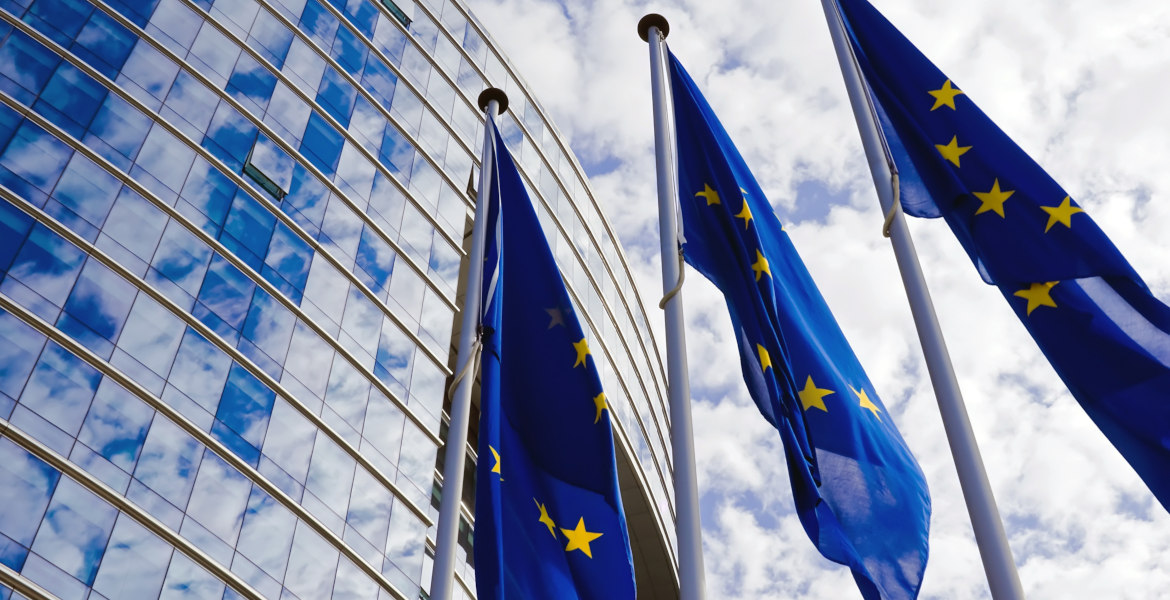German authorities are looking closely at the possibility of imposing a travel ban on Martin Sellner, the leader of the Identitarian Movement of Austria. Preventing Sellner from operating in Germany is part of the authorities' attempt to combat and "stop" the success of the nationalist Alternative for Germany party.
Sellner could be banned from Germany if he is considered "to pose a threat to German democratic stability" according to members of parliament's interior committee, and German liberals and leftists alike hope that Olaf Scholz's government will "take action" against Sellner.
– In our robust democracy we should in general not tolerate any agitation against our constitutional order, especially not from foreign extremists like Martin Sellner. In this respect, I think it is right and necessary for the security authorities to seriously examine an entry ban against Martin Sellner, says Philipp Amthor of Germany's largest party, the CDU, adding that a cautious approach is needed so that Sellner does not run the risk of being portrayed as a "victim".
They also point out that banning the nationalist leader from entering Germany is particularly difficult because he is an EU citizen, is not suspected of any crime, and enjoys free movement within the EU.
The reason why German establishment politicians are putting so much energy into preventing Sellner from visiting Germany is that he has met with representatives of the AfD and the more conservative wing of the CDU. He has been discussing how to proceed with the expulsion of large numbers of foreign nationals and non-assimilated people with migrant backgrounds who could be expelled if the AfD comes to power in the upcoming elections.
Repatriation to North Africa
During the meeting, Sellner raised the idea that millions of migrants and people with a migrant background who have not adapted to German society could be deported to North Africa and that a special city could be built for this purpose.
For decades, Germany has been one of the countries in Europe most affected by mass immigration and large-scale migration from non-European countries - and talk of the need for large-scale repatriation programs in Germany, as in Europe in general, is highly controversial.
The AfD leadership has stated that it has no plans to deport migrants to North Africa. One of the party's top officials was also fired after it emerged that he had attended the meeting.
"Right-wing extremist criminals"
Meanwhile, the German establishment is doing everything in its power to stop Alternative for Germany, which is currently supported by 20-25% of Germans, according to opinion polls, making it the second largest party in the country. In the eastern part of Germany, the party is the largest in several states.
Establishment parties have participated in massive demonstrations aimed at getting the country's highest court to declare the AfD unconstitutional and ban the party.
As for Sellner, he is a frequent visitor to Germany and has recently participated in the farmers' protests, where German farmers are protesting the government's plans to raise fuel prices and make farming in the country more difficult.
According to Mehmet Daimagüler, the "anti-racist ombudsman", Sellner is part of a "transnational network of rightwing extremist actors" who pose a threat "for internal security in Germany" - which is why it is "necessary that all legal measures at the state’s disposal are used against such rightwing offenders".
Martin Sellner was born in Vienna in 1989 and became politically active as a young teenager.
In 2012, he founded the Identitarian Movement of Austria and remains one of its poster boys, especially when it comes to mobilizing support or influencing policy in Germany, Austria, and other countries in the region.
The movement advocates, among other things, pan-European nationalism and large-scale repatriation of migrants of non-European origin. They are also convinced that politicians and others in power, for ideological reasons, are deliberately promoting a population exchange in which European peoples are replaced by people from the Third World - a population exchange they oppose and say they want to stop. They are also explicitly opposed to liberalism, Islamism and internationalism.
Sellner has long been accused by political opponents of being a "dangerous right-wing extremist" and has been banned from entering the United States and the United Kingdom because of his political views and alleged personal connections.




